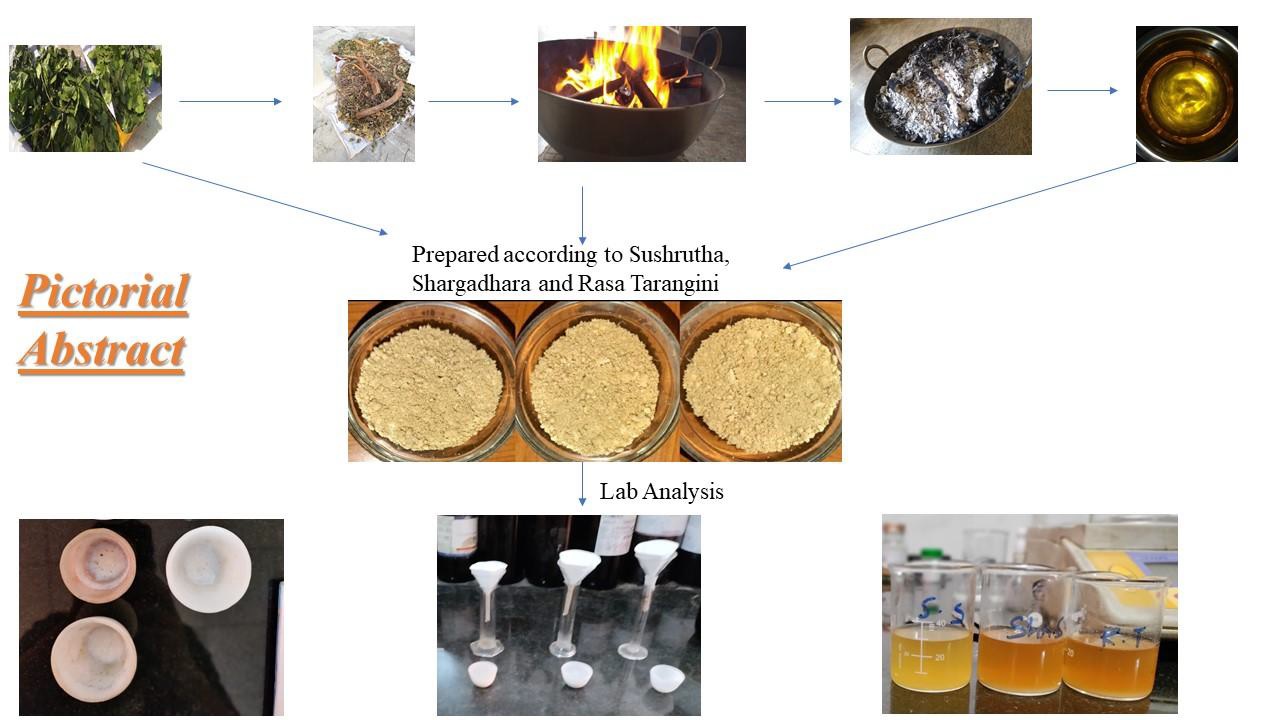The Comparative Analysis of Karanja Kshara Samples -Prepared According to Different Ayurvedic Textual References
Abstract
Karanja Kshara is an alkali, extracted from water soluble ash of the plant – Karanja {Pongamia pinnata (L.)}. The Kshara preparation techniques differ according to various authors, with respect to the ratio of water added to ash, soaking time, folds of cloth and number of filtrations. In the current study, Karanja Kshara was prepared as per different classical methods and analysed for the differences. Three samples of Karanja Kshara were prepared, according to the textual references from Sushrutha Samhita (Sample A), Sharngadhara Samhita (Sample B) and Rasa Tarangini (Sample C). Analysis of the methods of preparation along with organoleptic and Physico-chemical tests were conducted. There was a 14% yield of Kshara in Sample A, 7.45% of yield in Sample B and 7.54% in Sample C. In physicochemical analysis, there was 6.8%, 6.1% and 5.4% of loss on drying in Samples A, B and C, respectively. Total ash value was 84.7%, 85.78% and 87.89% in Samples A, B and C respectively. Acid insoluble ash value was 11.34%, 11.04% and 9.15%. pH value was 10.36, 10.30 and 10.37. Traces of Sodium, Potassium, Magnesium, Calcium, Sulphur, oxides of silica, Carbonate & Bicarbonate were found in all the 3 samples. There are very few notable differences found in the results, however, they are quite similar. In terms of yield, economy and alkalinity, sample A (Sushrutha Samhita) can be considered as the better method while sample method C (Rasatarangini) is easier and faster.
Downloads

Copyright (c) 2022 International Journal of Ayurveda and Pharma Research

This work is licensed under a Creative Commons Attribution-NonCommercial-ShareAlike 4.0 International License.






